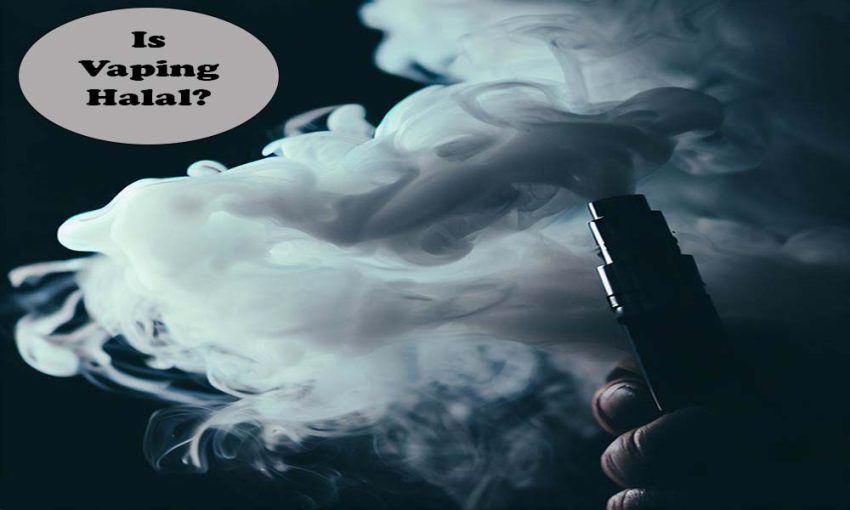In today’s world, vaping has become a popular trend among many individuals. But have you ever wondered whether vaping is permissible in Islam? Is vaping halal or haram?
In this blog, we will delve into the topic of vaping and its relationship with Islamic principles. We will explore why vaping is not allowed in Islam and the potential health effects associated with it. Additionally, we will examine whether alcohol is used in vaping products and its implications from an Islamic perspective.
So if you’ve been curious about the compatibility of vaping with your faith, keep reading to uncover the truth behind this controversial topic.
Is Vaping Halal?
The issue of vaping in Islam is a subject of contention among scholars. Some argue that it is prohibited (Haram) due to the potential harm it can cause to the body, as well as the addictive nature of nicotine. They believe that anything that harms the body is forbidden in Islam.
On the other hand, there are scholars who consider vaping to be disliked (Makruh), unless it contains prohibited substances such as alcohol or harmful additives. They base their argument on the principle that things are permissible unless explicitly forbidden.
Given the complexity of this issue, it is advisable to consult a knowledgeable scholar who can provide guidance based on Islamic teachings and individual circumstances. Ultimately, it is important for individuals to make informed decisions about their health and well-being while also considering their religious beliefs.
Why is Vaping Not Allowed in Islam?
Vaping is considered prohibited in Islam due to its involvement with harmful substances. Islamic principles prioritize the preservation of health and body, making vaping contradictory to these values. Additionally, vaping contradicts the Islamic concept of avoiding anything that may cause harm or addiction, similar to the prohibition on smoking.
How Does Vaping Affect Health?

Vaping, or using electronic cigarettes, is often promoted as a safer alternative to traditional smoking. However, it is important to recognize that vaping still carries certain health risks. Here are some potential effects of vaping on health:
- Nicotine addiction: Most e-cigarettes contain nicotine, which is highly addictive. Nicotine addiction can lead to dependence, withdrawal symptoms, and difficulty quitting.
- Respiratory effects: Vaping can irritate and inflame the airways, leading to symptoms such as coughing, wheezing, and shortness of breath. It may also exacerbate existing respiratory conditions like asthma.
- Lung injury: In recent years, a phenomenon known as e-cigarette or vaping product use-associated lung injury (EVALI) has emerged. EVALI is characterized by severe lung damage. Symptoms of EVALI include chest pain, cough, fever, and difficulty breathing. Most cases of EVALI were associated with the use of illicit or contaminated vaping products. These cases highlight the potential risks of vaping.
- Chemical exposure: E-cigarette aerosols can contain various potentially harmful chemicals, including nicotine, formaldehyde, acrolein, and volatile organic compounds. These chemicals may have adverse effects on the respiratory system and overall health.
- Cardiovascular effects: Vaping has negative effects on cardiovascular health. Vaping increases heart rate, elevates blood pressure, and impairs blood vessel function. These findings highlight the detrimental impact of vaping on the cardiovascular system. Vaping poses potential risks to overall health.
- Effects on youth and young adults: Vaping among youth and young adults has become a significant concern. It can lead to nicotine addiction, hinder brain development, and increase the likelihood of future tobacco use.
It is worth noting that research on the long-term effects of vaping is still ongoing, and our understanding of its health impacts is continually evolving. It is crucial to stay informed about the latest scientific findings and consult with healthcare professionals for personalized advice and guidance.
Is Alcohol Used in Vaping?
Alcohol is not used in vaping. Instead, e-liquids typically contain vegetable glycerin (VG), nicotine, and propylene glycol (PG), without any alcohol. Some flavorings may mimic alcoholic beverages, but they do not actually contain alcohol. Always check the ingredients list for specific dietary or religious restrictions.
Conclusion
In conclusion, based on the principles of Islam, vaping is generally considered not halal due to the potential harm it can cause to one’s health. Islam encourages avoiding the use of harmful substances and engaging in activities that may harm one’s well-being.
It is important for individuals to seek guidance from knowledgeable scholars to make informed decisions aligned with their personal beliefs and values.
Smokers have found that vaping negatively impacts health, and the association of vaping with the use of alcohol-based products further raises concerns. As a responsible Muslim, it is essential to make informed choices that align with Islamic principles and prioritize our well-being.
Read More:

